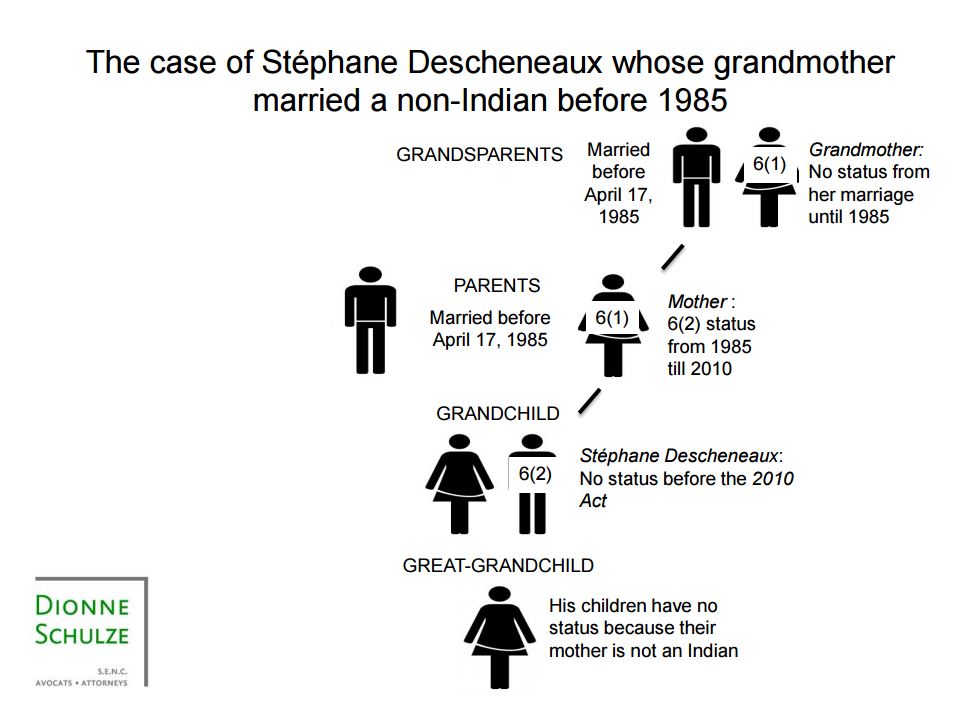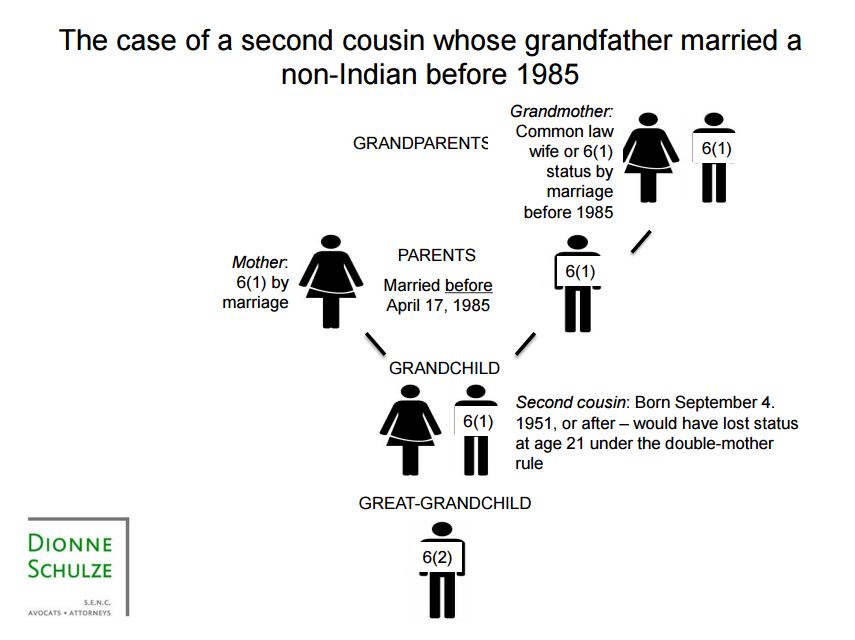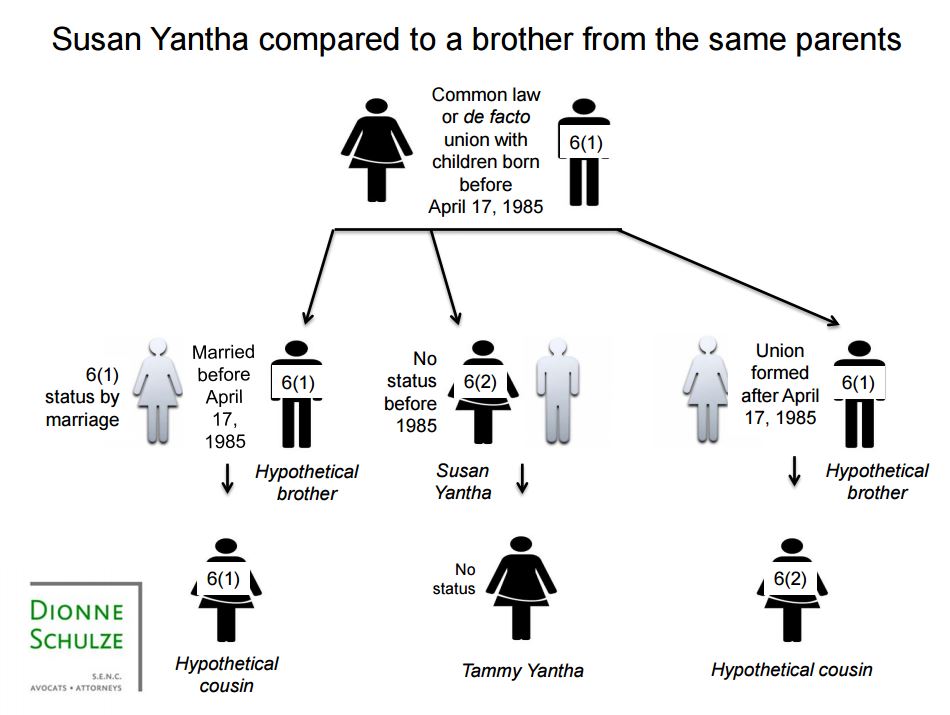Sex-discrimination in the Indian Act addressed again: Descheneaux and Yantha
By Lynn Gehl
Here is a compilation of news coverage on: Descheneaux and Yantha v. Canada. These are two separate issues/case heard together in the province of Quebec in August 2015.
Here is judgement:
http://www.canlii.org/en/qc/qccs/doc/2015/2015qccs3555/2015qccs3555.html
August 6, 2015
“Justice Chantal Masse gave the federal government 18 months to correct the relevant provisions concerning registration under the Indian Act, before they are declared invalid as an unjustifiable breach of the right to equality guaranteed by section 15 of the Canadian Charter of Rights and Freedoms.”
Click here: http://www.netnewsledger.com/2015/08/06/indian-act-rules-on-status-declared-discriminatory/
September 4, 2015
“The strong language used by Justice Masse is a clear indication of the courts’ growing frustration with Parliament’s inability to deal with the situation once and for all, said Geneviève Motard, a law professor at the Université Laval.”
December 7, 2015
Here is a power-point presentation that explains the two forms of sex discrimination that prevent Descheneaux and Yantha from passing on Indian status to their children.
Click here:
In summary, the Descheneaux case has to do with the ongoing issue where the women who married out and who regained status after 1985 and their descendants − children, grandchildren born before 1985 or from marriages before 1985, as well as great-grandchildren − are treated less than the descendants of men who married out. The women’s children were only granted 6(1) status, their grandchild 6(2), and the great-grandchildren are denied. However the men’s children are 6(1) and if those children married before 1985, grandchildren 6(1), and the great-grandchildren are 6(2).
This has to do with how the new second-generation cut-off rule is applied by Aboriginal Affairs retroactively to the women who married out and their descendants. What is called for is for all the descendants of those who married out before 1985 to be treated the same regardless of the sex of their ancestor.
These two images may help you gain a better understanding:


The Yantha issue is easier to explain and understand. It has to do with the fact that girl children born out-of-wedlock are treated less than boys who are born out-of-wedlock. See below:

February 25, 2016
“In September, federal lawyers appealed and Masse’s orders were suspended. Since then, the Liberal government has been reviewing appeals launched by the previous Conservative government, as well as the body of laws dealing with aboriginal rights. For that reason, Ottawa has dropped its appeal − a decision which could allow for status to be shared with more people across the country.”
Click here: http://ipolitics.ca/2016/02/25/ottawa-drops-appeal-in-case-on-womens-right-to-indian-status/
Short biographical Note

Lynn Gehl, Ph.D. is an Algonquin Anishinaabekwe. She is an outspoken critic of colonial law and policies that harm Indigenous women, children, and the land. Her book The Truth that Wampum Tells: My Debwewin on the Algonquin Land Claims Process is available with Fernwood. You can see Lynn’s work at www.lynngehl.com


